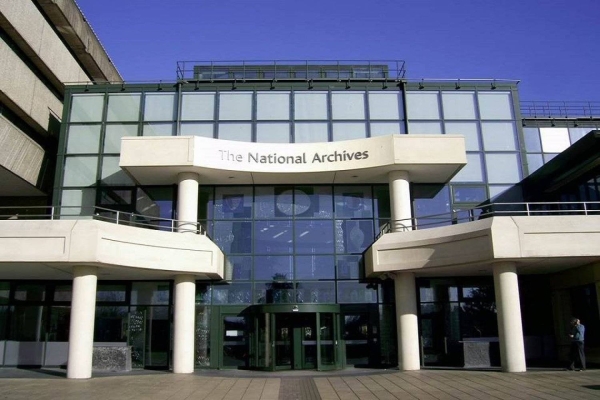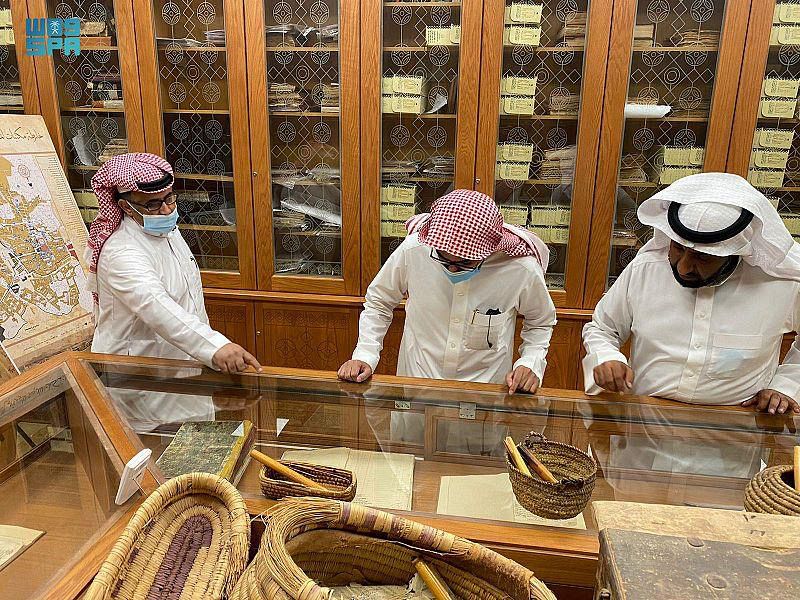
RIYADH: From one generation to another, history is told and retold. But with time, large fragments are lost, so a Riyadh-based research center is helping preserve some of Saudi Arabia’s most important historical facts.
The earliest forms of storytelling for many cultures were primarily oral, combined with gestures and expressions, and at times, even drawings and paintings. With time these stories differ, their essence forgotten and countless tales lost through time. In recognition of the beauty of this dying art, the King Abdul Aziz Foundation for Research and Archives (Darah) has upgraded its work to record and preserve oral accounts of Saudi Arabian history and make them accessible to researchers.
Speaking to Arab News, Darah spokesman Sultan Alawairdhi said the center’s founding is in line with the government’s policy to preserve its history. He added that it is of vital importance to ensure that historical narratives are accessible to all by using knowledge and historical facts told by the elderly who lived through major historical events that shaped the Kingdom.
“The Oral History Center was founded 26 years ago to document popular narratives from the perspective of the public. Shortly after its foundation, the center became a member of the US Oral History Association and the UK Oral History Society,” he said.
The center acts as a historical source complementary to other materials, including books, manuscripts, documents and more. Anyone who seeks knowledge about certain events can get plenty of information, but written history often neglects the “human element” because of the priority on documentation and research in the past, said Alawairdhi.
He said agricultural methods, crafts, travel, motherhood and childhood and health affairs are often left untouched by written history sources.
“Since its foundation, the center has set standards in line with global centers that have a considerable experience in history. The center has been provided with state-of-the-art technology and tools on a continuous basis to help conduct interviews, record audio, take photographs and make videos, as well as transcribe, archive and store equipment,” he said.
The center meets all the requirements for conducting oral interviews, securing information, preparing main points of discussion and more. It also has venues to conduct interviews that provide the necessary tools to make the most out of research, Alawairdhi said.
Today, the center has recorded more than 2,000 audio and video interviews with people hailing from different parts of the Kingdom. Alawairdhi said the center’s aim is to digitize written material and make it accessible to researchers who wish to listen or read the interviews, thus serving scientific research and progressing knowledge nationally and
regionally.
“Oral history is an important source, such as archeology and historical accounts. Its importance lies in the fact that preservation of key historical accounts, biographies and characters is instrumental for the second state, which is recording. History began as an oral tradition that depended on narrators,” Mohammed Alhelfi, a modern history researcher, told Arab News.
Material derived from an oral tradition is fundamental in reaching accurate historical recounts, such as cross-border travels, which were originally recorded through oral accounts, but later turned to written records. Because oral history preceded written history, it must be subjected to a scientific methodology that criticizes its content and achieves balance between different historical accounts of a certain event, Alhelfi said.
At some points in the past, oral accounts were considered inaccurate compared to written accounts, and recordings were subject to skepticism by researchers, who claimed that narrators could hide or distort the truth based on their relation to historical events.
Eyewitness accounts of historical events are an issue many historical research centers have faced. Experts race against time to question as many of the elderly as they can. Researchers and interviewers depend largely on word of mouth, place blind faith in interviewees and hope for the best. Luckily, the elderly often have a strong belief in keeping with the truth and telling the story as it is, without room for distortion and error.
As with many historical centers, documenting the evolution of a culture is key to understanding its history. One of the Kingdom’s more unique features is a diversity of dialects, fashion, lifestyles and more. Darah holds behind its walls a treasure of local dialect and semiotic language research.
“The center trains its Saudi staff members how to methodologically document oral historical accounts and explains to them the importance of oral documentation as a key source of historical accounts. The center also translated and published several works in the field,” Alawairdhi said.
He added that the process of recording oral history is “extremely difficult” and requires interviewers to travel long distances through desert and tough terrain to conduct interviews. The process also requires good negotiation skills on the part of the interviewer, who must convince people to answer questions.
“In fact, the teams working in the center have interviewed different people and some experiences were funny while some were painful. One of the saddest stories happened a while ago when the teams went to interview an elderly person only to know later that day that he had died,” said Alawairdhi.
Evolution has changed the tools available to storytellers. With the advent of writing and the use of modern technology, historians are linked by one common theme, to identify historical significance and keep traditions alive.









